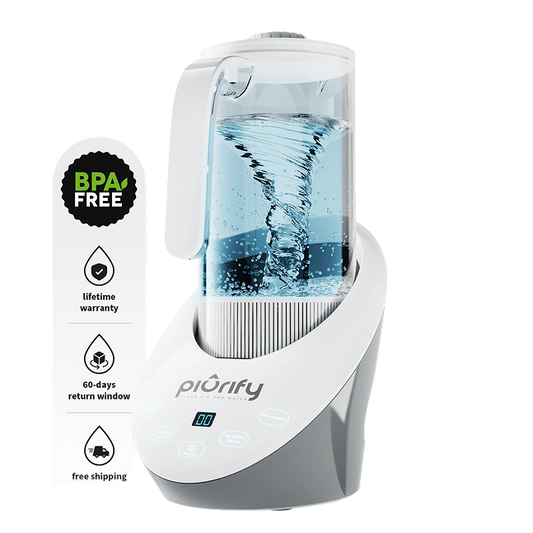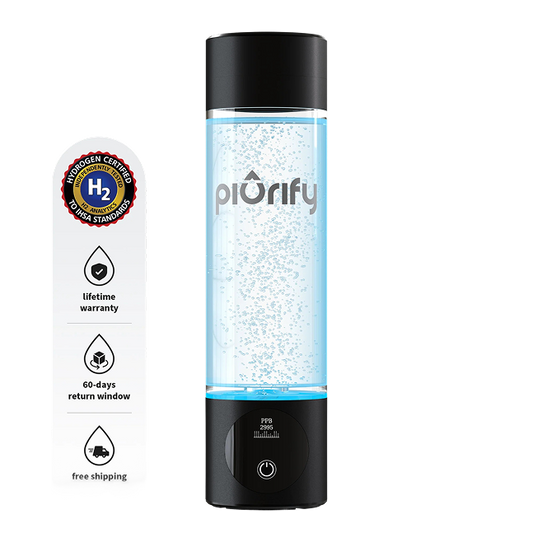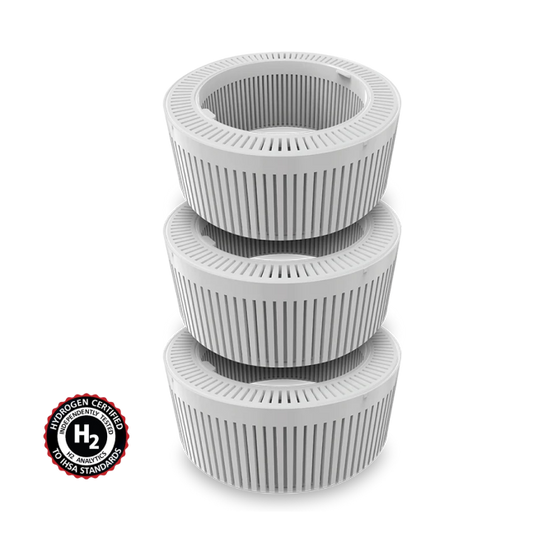A Guide to Hydration for Seniors
Proper hydration is important for people of all ages, but it becomes even more important for seniors as they age. At this stage in life, many seniors start to lose their natural sense of thirst, causing them not to get the proper water content that they need. Sometimes, seniors with memory loss will simply forget to drink water throughout the day, which increases the risk of dehydration even more.
Hydration for seniors is important for a number of reasons. Let’s take a look at why, how to spot symptoms of dehydration in elderly, and tips for getting adequate fluid intake.
The Importance of Hydration in Older Adults
By now, you’ve probably heard that drinking water can do wonders for your health. Studies show that older adults who stay properly hydrated tend to age healthier. This means they have less chance of developing chronic medical conditions and live longer compared to those who don’t hydrate properly. In short, drinking water is an easy thing that older adults can do to slow down the effects of aging and maintain a healthy lifestyle.
Plain water is one of the best drinks for elderly adults since it can help boost cognitive function. This is because proper hydration helps to enhance the function of brain cells, which can help fight the natural slowing of mental processes that often come with aging.
Good hydration can also help seniors balance their electrolytes, stabilize blood pressure and volume, maintain good digestion, and other important health benefits.
How Hydration Needs Change With Age
As you get older, the amount of water in your body naturally decreases over time. Between the ages of 20 and 80, your body’s water supply shrinks by about 15%, or six liters. Because of this change, seniors are at a higher risk of dehydration. As mentioned, many seniors also have a decreased thirst, making it harder for them to prevent dehydration. This is especially true for older adults who are living with dementia or who have had a stroke.
Some seniors may find it hard to get the right amount of fluids they need due to the physical changes that come with aging. Besides the lack of thirst, some older adults are averse to drinking water because of difficulty swallowing or incontinence.
If you notice an older adult in your life isn’t getting enough, try to encourage them to get their recommended glasses of water in each day to avoid unwanted health risks.
Risks Associated With Dehydration in Seniors
Dehydration prevention can help keep several health conditions at bay as you age. Mild dehydration can cause uncomfortable symptoms like:
- Dizziness
- Muscle cramps
- Dry mouth
- Headache
- Loss of appetite
Higher levels of dehydration can lead to more serious health issues. The weakness and delirium associated with dehydration make seniors prone to falls and injuries. Dehydration can reduce kidney function, which can then cause urinary tract infections or even kidney failure.
Severe dehydration is quite dangerous for the elderly, as it can cause blood pressure to drop and reduce blood flow to the heart and brain. In rare cases, dehydration can cause heart attack or stroke.
How to Recognize Dehydration Symptoms in Seniors
There are certain things to look out for in older adults who are at risk for dehydration. Some symptoms are associated with using the bathroom, like constipation or infrequent urination. Some seniors may become confused, disoriented, or even faint. Dehydration is also a common cause of headaches, nausea, and dizziness, symptoms which can be mistaken for other conditions.
Some symptoms are easier to spot. For the elderly, drinking insufficient fluids can cause eyes to have a sunken appearance or loose skin that doesn't snap back into place when pinched. Seniors may also have a sensation of dry mouth that’s noticeable when they’re speaking.
Daily Hydration Goals for Seniors
As you can see, water is one of the miracle drinks for seniors when it comes to good health. So, how much do you need to drink? You’ve probably heard that eight glasses of a day is the goal, but the right number actually differs from person to person. Factors like activity level, weather and environment, diet, and overall health factor into how much water your body needs each day.
Even so, one of the best hydration tips for seniors to remember is this handy water intake formula. Aim to drink half an ounce of water per pound of your body weight per day. For example, a senior weighing 140 pounds should try to drink 70 ounces of water daily.
Tips for Staying Hydrated
If you’re looking to drink more water, start by setting your daily drinking goal. Use an app or a diary to track how much you drink to see the progress you make toward your goal. Having a glass of water first thing in the morning and then one with each meal is a good way to get started on meeting your goal.
While water is one of the best hydration drinks for seniors, don’t rule out other beverages. Non-sugary drinks, like natural juices or flavored water, can help if you find it hard to drink plain water. Incorporating fresh produce with a high water content, like cucumbers, melons, and lettuce, can also help you to stay hydrated.
Invest in a reusable water bottle that you can take with you. If you know that you’re going to be out of the house for a bit, fill up your bottle and take it with you so that you can hydrate throughout the day.
Make Hydration Easy With Piurify
Creating a hydration plan doesn’t have to be complicated. Adding hydrogen water from Piurify into your hydration routine makes it even easier to prevent dehydration at any age. Hydrogen water can elevate your overall hydration and wellbeing with natural antioxidants and minerals.
Our products make it easy to hydrogenate your water both at home and on the go so that you’re never at risk of dehydration. Reach out to Piurify today to learn more about our line of revolutionary products that can help you stay both healthy and hydrated as you age.


